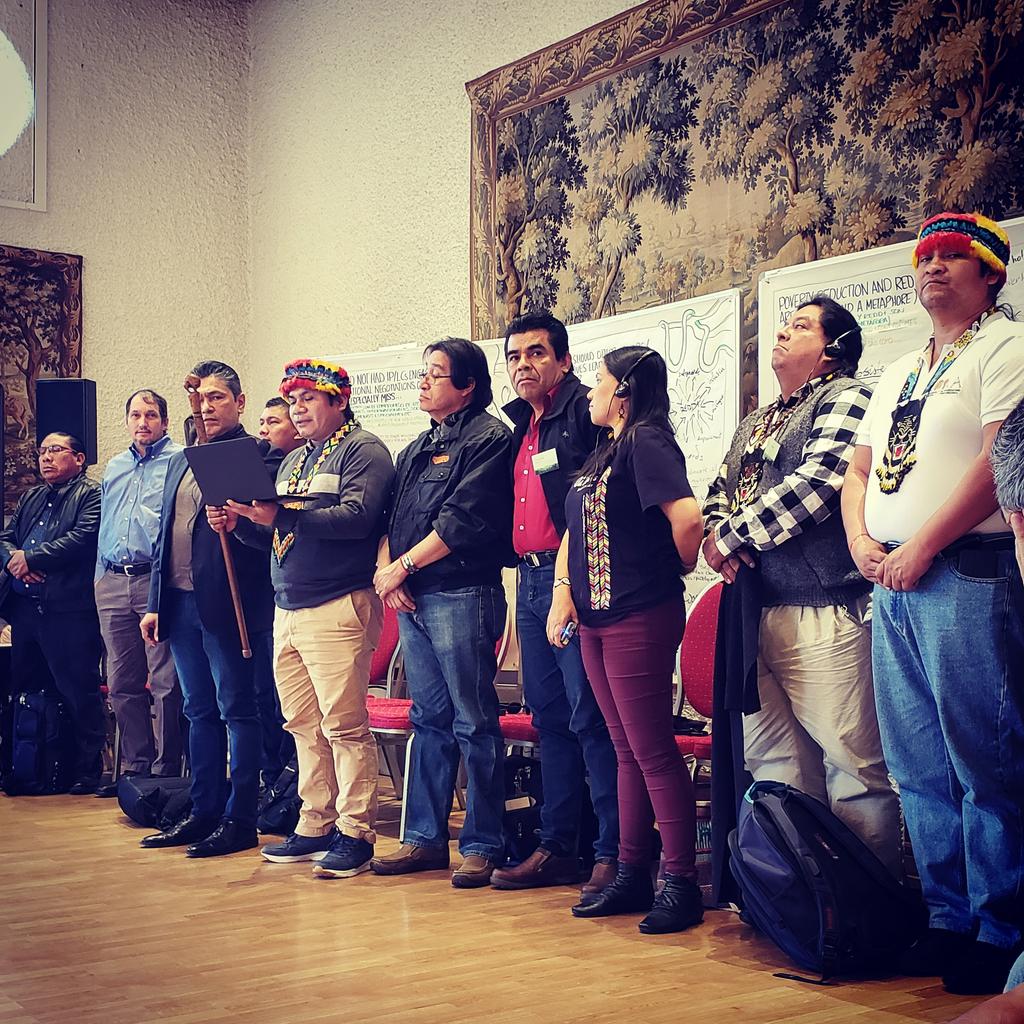Since its beginning, REDD+ has generated different and sometimes opposed opinions on its possible impacts over the rights of indigenous peoples. Currently, 10 years after its implementation, an answer to many of these debates could be found in the Weilburg Declaration, made during the REDD+ meeting together by AMPB, COICA, COIAB, the Indigenous Forum Abya Yala and the Indigenous Council of Central America. The meeting, called «Social Inclusion in REDD + processes: Status and achievements of 10 years of preparation and implementation of REDD +” was organised by Germany’s Federal Ministry for Economic Development and Cooperation and the World Bank’s Forest Carbon Partnership Facility on November 29th, 2018.
The event, designed precisely as a space for evaluating REDD + mechanisms, became the occasion for Latin American indigenous and forest peoples to expresse together a shared statement as to propose projects to reduce emissions caused by deforestation in Latin America.
Weilburg’s declaration is quite significant as it accounts for a joint work on advocacy which indigenous and territorial community organizations are building on a regional and global level. The text points out and generates proposals on key points such as inequalities in the financing process, deficiencies in the representative processes, the need to recognise the rights to land and territories to indigenous and local communities, and, of course, the importance of respecting the principle of Free Prior and Informed Consultation
As you can see in this video made during the statement, Tuntiak Katan, Shuar and Vice General Coordinator of COICA, holds a word stick while reading the Declaration. Scroll down to find the full text of the Declaration.
Declaration of Indigenous and Community organizations from Weilburg to 10 years of REDD + (estoy averiguando con AMPB si existe una traducción oficial del texto: ver texto en amarillo)
FIAY, COICA, AMPB, CICA, COIAB AND OTHERS
The creation of REDD+ as a response to climate change based on forests is reaching 10 years old, and at the end of the mandate of the FCPF and UNREDD+, indigenous and community organizations in Latin America want to share our proposals.
1. We recognise that the REDD+ discussion has made important progress: it has built technical capacities in governments and civil society on the reduction of emissions from deforestation and degradation and has allowed indigenous and community organisations to make visible the rights agenda on lands and territories, social and environmental safeguards, forests and carbon, participation and consultation, among others.
2. However, despite these advances, the balance sheet also records how slowly the process has moved to enter the implementation phase and that much of this delay has been the resistance of many governments to seriously address the rights agenda. Particularly sensitive have been property rights over land and territory, carbon rights, and participation and consultation.
3. We also wish to point out that in this decade of REDD+ construction the financing has been very unequal and unjust and the indigenous and community representations have been very disadvantaged, since our appreciation is that most of the financing has been channelled to the governments, large NGOs and consultants, the lack of funding being a very strong barrier for the full and effective participation of indigenous peoples and local communities in the construction of REDD+ processes.
4. Indigenous peoples have developed a successful social base, which has made possible the results of REDD+ in the countries, however, in this event this contribution was not visualised.
Our proposals
1. We call on the FCPF, the donor countries and the governments of the REDD+ countries to recognise the rights to land and territories, forests and carbon, go beyond REDD and respect the spaces for participation of indigenous peoples, without these qualifying conditions REDD+ will not be viable nor will it fulfil its objectives.
2. Access to financing for indigenous peoples and communities and their organizations is fundamental at this stage and we propose to create a special fund for indigenous peoples directly, so that FCPF significantly increases resources and greater speed and opportunity for its implementation. The Program for Strengthening Capacities of Indigenous Peoples and Local Communities has been important but notoriously insufficient and not very timely.
3. In addition, we demand the promotion of initiatives of indigenous and community territorial funds on Climate Change, we can not depend on intermediaries for territorial investment, it is important that donor countries and REDD+ countries understand that these instances will be the best guarantee so that the resources reach the territories and arrive with opportunity.
4. Generate mechanisms to counteract territorial conflicts such as: Invasion of indigenous lands, displacement, criminalization, among other conflicts.
5. It is necessary to strengthen the full and effective participation of indigenous and community peoples at the global level. To achieve this, we propose to create a permanent working group coordinated by the FCPF, with the representation of indigenous and community peoples.
6. All REDD processes must respect the principle of Free Prior and Informed Consultation FPIC.
Read the full statement here: https://goo.gl/TfzbKk

